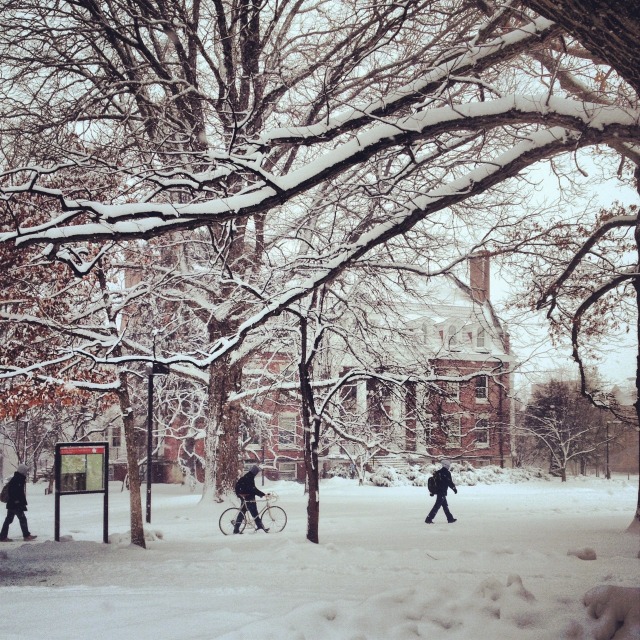
Like black stars across a light blue field
or scattered ink blots
they come
before sunset,
form,
unform
schisms shivering apart
and re-
flocking
swarming,
settling finally
in bare oaks between empty buildings, filling
them a hundred deep, like black leaves alive
with breezeless rustling. They crowd
branches, jostle, complain in soft, cracked-open
voices that rise, like steam,
to dome above them, ragged-edged against
the cold clear sky
with its winter constellations, its blank faces
of long-dead stars.
They seek heat, the imperceptible
residue of buildings, grounds, each others' bodies.
Watching them fly to campus each night, I think
of the sky stretched above them like an empty, unending canvas, how if they flew across that field
they would appear as shadows flickering blue points of starlight, how they would slip
into the spaces between, black dispersing into black
ink into ink.
I think
of a painting I saw once in a gallery, a plain white canvas scrolled in black:
IT IS STARTLING TO SEE THE BREATH
OF CROWDS. YOU USUALLY DON’T BELIEVE
THAT PEOPLE CAN REACH THAT FAR
Crowding together against the cold, against the emptiness
of sky, of space,
they murmur, fidget, rub wings, run out
uneasy hours until dawn,
when they are free to scatter again—chalky,
now, streaked with the mess of their communion.
Originally from southeastern Pennsylvania, E.A. Giorgi is a second-year MFA candidate in ISU’s program in Creative Writing and Environment. Before coming to ISU, she received her bachelor of science in journalism from Boston University, and spent ten years working as a journalist and editor. She teaches composition and creative writing at the university, and is managing editor of Flyway Journal of Writing and Environment, ISU’s nationally-distributed literary journal.
About the poem: I wrote this poem last winter for a poetry workshop at ISU, inspired by the crows I saw flying to campus on winter nights as I came into class. I was struck by the way the cold forced them to come together, and saw it as a way to talk about the tenuousness of connection—among both crows and humans—and the oftentimes-messy nature of intimacy.